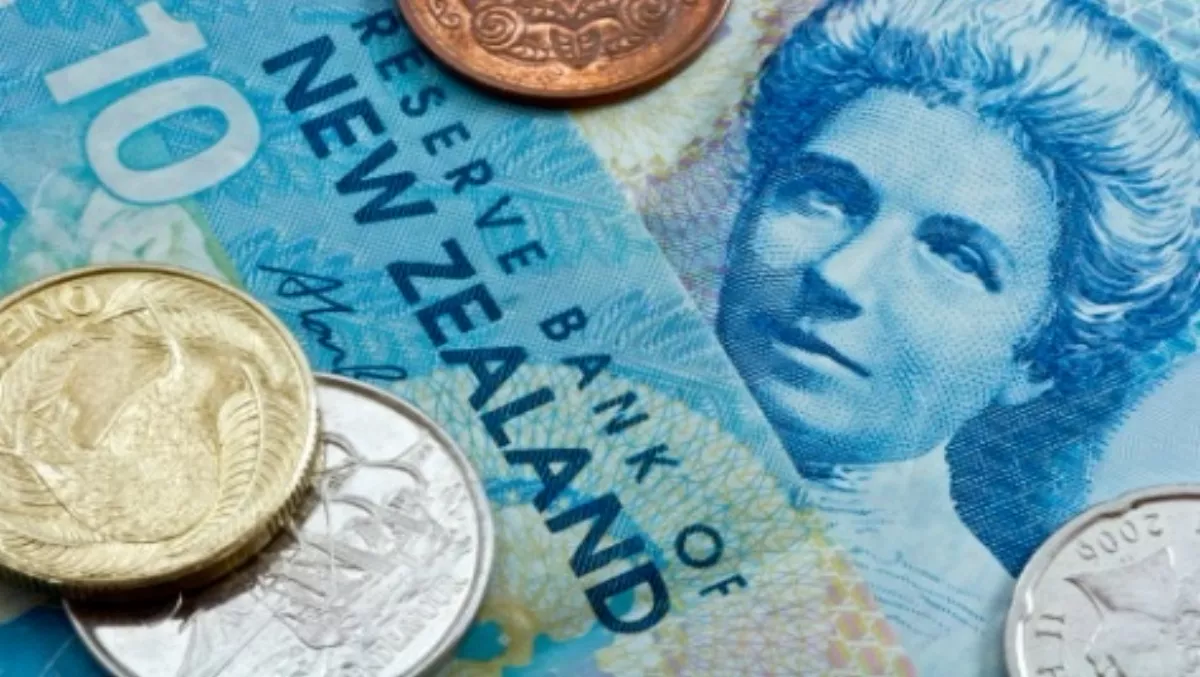
The New Zealand dollar fell against its trans-Tasman counterpart after the Reserve Bank of Australia kept its key rate unchanged, while leaving open the possibility of a future cut.
The kiwi fell to 96.32 Australian cents at 5pm in Wellington from 96.77 cents immediately before the announcement, and 96.88 cents yesterday. It gained to 75.33 US cents from 75.09 cents at 8am, and 75.21 cents yesterday.
The RBA kept its cash rate at 2.25 percent, saying economic growth seen as below-trend, and the Australian dollar was above fundamental value, particularly as commodity prices fall. Governor Glenn Stevens said its cut last month meant a pause was needed, though "further easing of policy may be appropriate over the period ahead, in order to foster sustainable growth in demand and inflation consistent with target." Traders had priced in a 59 percent chance of a cut at today's meeting, and the Australian dollar rose to 78.16 US cents at 5pm in Wellington from 77.69 cents immediately before the release.
"They've left the overhang of further interest rate cuts that could be possible in forthcoming meetings," said Martin Rudings, senior dealer foreign exchange at OMF in Wellington. "That just leaves it overhanging in the kiwi's favour, but it will be interesting to see what (RBNZ governor Graeme) Wheeler has to say next week."
The RBA's decision comes after the People's Bank of China cut its key lending and deposit rates to spur slowing economic growth. China is the biggest trading partner of both New Zealand and Australia, and its slowdown is seen as weighing on both nations' economies. The kiwi advanced to 4.7267 Chinese yuan at 5pm in Wellington from 4.7184 yuan yesterday.
New Zealand property values rose at a 6.4 percent annual pace in February, the biggest yearly gain since September, as the country's biggest city, Auckland, continues to struggle with migration-fuelled demand and limited available housing stock.
Auckland's housing market is a key concern for the Reserve Bank, which is contending with tepid inflation due to the strong currency and falling oil prices, and rapid property appreciation in the country's biggest city. Governor Graeme Wheeler will review the official cash rate next week, and traders have priced in an 8 percent chance of a rate cut.
Traders will keep an eye on Fonterra Cooperative Group's GlobalDairyTrade auction on Tuesday in the US to see whether dairy prices will continue to recover from last year's slump.
The kiwi was unchanged at 67.29 euro cents at 5pm in Wellington from the same time yesterday, and edged up to 49 British pence from 48.84 pence. It was little changed at 90.19 yen from 90.12 yen yesterday. The trade-weighted index was 78.32 at 5pm in Wellington from 78.36 yesterday.
New Zealand's two-year swap rate was unchanged at 3.54 at 5pm in Wellington from the same time yesterday, and the 10-year swap rate rose to 3.78 from 3.72.